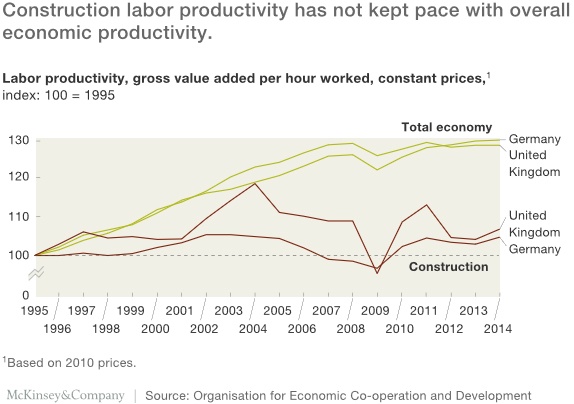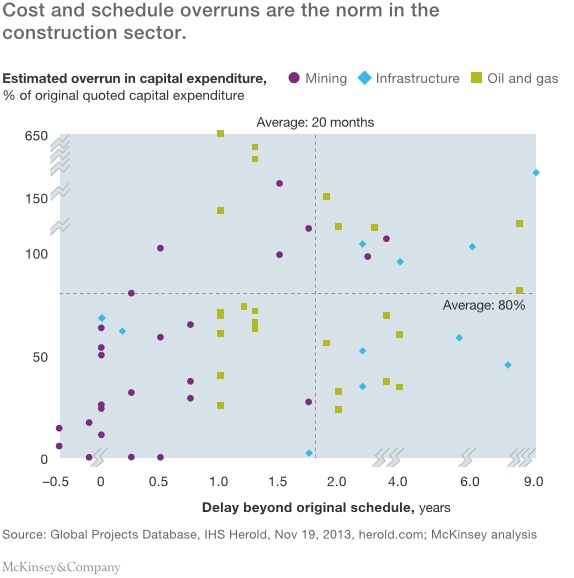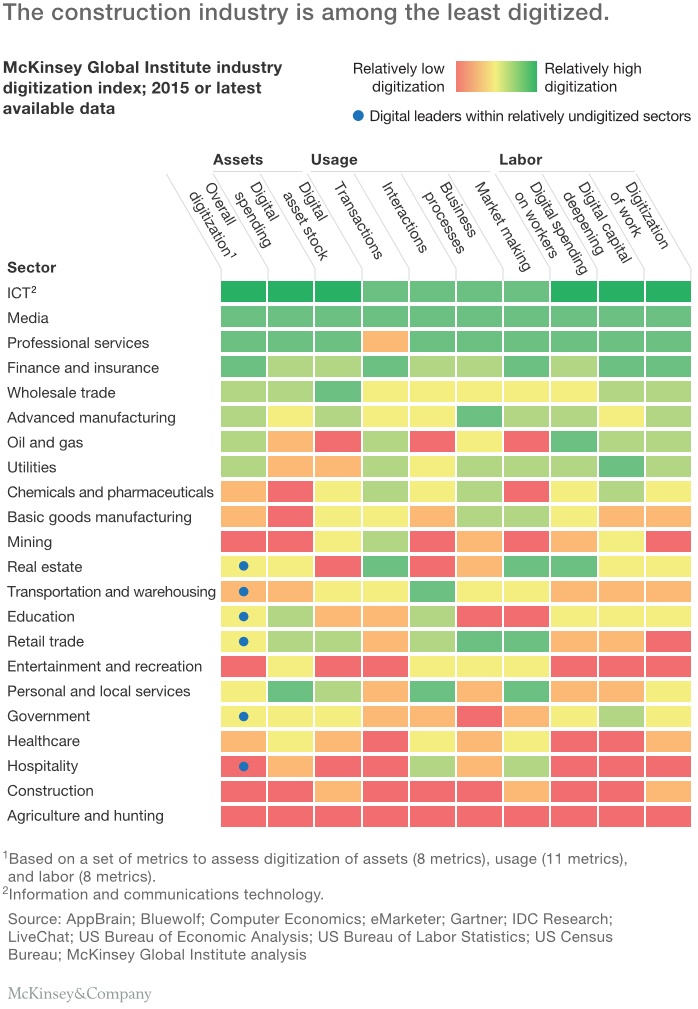Housebuilders are ripe for digital disruption – here’s why
By 2030 analysts predict that machines a thousand times more powerful than the human brain will be responsible for making a third of today’s UK jobs redundant. Digitisation and the advent of the so-called Fourth Industrial Revolution are disrupting industry after industry, but until now housebuilders – and the wider construction industry - have remained largely unaffected. Here I explore why and what I think will happen next.
For a long time the construction sector has dwindled near the bottom of the IT and R&D investment league table, typically 1 percent of revenue versus a 3.5 percent average. While the likes of manufacturing, for example, has witnessed significant productivity gains over several decades, construction productivity has largely flatlined, even dipping in the nineties and noughties.

Data on large construction projects hint at the challenges faced by housebuilders, with the big projects typically taking 20 percent longer to complete and up to 80 percent over budget.

So why has change been slow?
Technical challenges have had a role to play in the slow pace of digitisation. Rolling out solutions across dispersed sites has traditionally been difficult. And the varying sophistication of smaller firms who act as subcontractors poses additional challenges.
While there are opportunities to digitise the management and control of construction projects, as well as emerging robotics to automate some of the construction, the industry’s track record suggests that this area digitisation remains some way off.

For the housebuilding sector though, the driver for change comes from digitally-savvy consumers accustomed to the online experiences they are getting elsewhere in their lives. And it is here that construction firms’ hands are being forced.
A big driver is the customer experience. NHBC and HBF surveys continue to highlight home buyer dissatisfaction. As housebuilders wrestle with a skilled labour shortage and years of underinvestment in IT, it’s clear that communication with buyers along the buyer journey - from enquiry to contracts, to completion - are disjointed and unfit for today’s consumer. And when expectations become unrealistic or poorly managed, dissatisfaction sets in, particularly if other quality control measures are substandard.
The common answer to date has been an over-reliance on discounts and giveaways to appease disgruntled buyers. But the growth of social media now makes it easy for unhappy home buyers to amplify their woes and do damage to the brand.
With a government putting pressure on the industry to build more affordable homes and a new generation of socially-connected buyers, the burden on big housebuilders will only increase.
I sense a growing appetite in the housebuilding sector to embrace new digital technologies. And with Microsoft’s evergreen, more affordable cloud technologies the opportunity for firms to explore how they can shake up the industry and win or protect market share is opening up.
In response, Crimson has invested in accelerators to help housebuilders cut the risk and time of IT projects. You can learn about Crimson’s Property Accelerator in the video below. Crimson also invites housebuilders to book a Free Discovery Call.
Read On

The Holy Grail Of Digital Disruption: Customers Come First
Digital disruption can be a tricky challenge for CIOs to manage. In most organisations, it is the...
Coca Cola CIO talks digital disruption at Innovation Conference 2017
Coca Cola Regional CIO Adam Forde will be addressing the ‘people-side of digital disruption’ at ...